13 Oct Tim Berners-Lee: The goal of the worldwide web is to serve humanity
A conversation with Tim Berners-Lee
By Doris Obermair
Sir Tim Berners-Lee, also known as the father of the World Wide Web – he built all the necessary elements to make it work: HTML, HTTP, the first browser, the first server and the first web page – has repeatedly expressed his concerns that the web as we know it might become a fragmented playground for particular interests, accessible only to a small proportion of the world population. As director of the Worldwide Web Consortium, the organization that has been developing the technological web standards, the so-called W3C recommendations, he has been fighting for web interoperability based on open, non-proprietary standards. Now he launches a new initiative: the World Wide Web Foundation
Whereas the W3C mainly cares about the technological issues for free and open access to the web, the WWW Foundation will dedicate its effort to guaranteeing that its applications will benefit all people on the planet. In an informal press meeting in Barcelona he confesses that he mainly gets his news from the radio rather than from the web and says that he is not afraid of an all-might Google because, «there is always a danger that competition is destroyed by the complete dominants but the nature of competition is to try to tame that dominance. So in fact, there has always been a constructive tension between everybody trying to make their technology the best but also realising that they always have to work with everyone. Nobody can just be the only supplier. The web is always bigger than one player!» Here is a summary of Sir Tim’s Meeting the Press.
Question: When Clay Shirky asked you if our expectations in the Internet were actually too high, you say that you are actually afraid that we ask too little of the Internet. In what should we challenge the web?
Answer: Technology has been happening faster and faster. To think now the web is done and people won’t be thinking about new ideas is crazy. We can only expect and we must plan for the more and more exciting things done on the web and with the web. So specifically with some of the things that have been on the agenda since the beginning are still not done. I wanted the web to be a collaborative space where everybody could play and work together and it still has to reach its potential there. It is a great web for documents in some way but it is still not a great web for data. I cannot access data out there, the web of linked data and in particular the Linking Open Data project that has been running for the last 2 years, is very exciting. Also, the web is moving on to mobile devices. The exciting thing about that is that it will move out to countries and to rural areas where people don’t have computers and they will be able to get it on their phones. In the next few years I expect to see huge growth, huge new development there. And those are only the things that I can think about but the number of people having their own ideas about challenging the web is of course much greater.
Q: Why was it necessary to launch a body like the WWW Foundation, having the W3C as a neutral guide.
Our thoughts about the foundation started when we were looking at the research that we were doing and we realised that the goal of the research was that the web should serve humanity. And when we thought about the idea of the web as technology serving humanity we realized that it was really inappropriate to just focusing on developing the latest new gadget for an executive to put on his fancy mobile phone, ignoring 80% of the world who don’t use the web at all. So one part of the Foundation’s mission is to create an awareness of the needs of people who for one reason or the other can’t use the web, people in rural areas, people who are too poor to have the equipment, peoples whose characters or keyboard sets are not available in typical software, people who are illiterate and who will find it difficult to work in a web which is largely text.
Q: One of the challenges ahead of us is to figure out mechanism that allow us to distinguish false from true on the Internet?
Isn’t this humanity’s quest in general since the age of the Greeks? In general philosophy from the very early days we have been trying to wrestle with ways to find out what is true. So all over the years we have developed a scientific method for testing, making hypothesis and testing them and we have developed a scientific society which has rules by which people peer-review things which are brought out as theories and subject them to tests and subject them to critical review. That has been a slow development over time in which the Internet can maybe help us to do that more effectively. But just because you introduce the Internet, there is no quick fix, there is no simple way of telling truth from false. As journalists additionally and very importantly you are a critical part of the system that filters false from truth. The fact that your writing may go out over the web rather than over the radio or the paper does not change that function. One of the interesting things which is happening in some places on the web, for example at Wikipedia which used to be a site anybody could write anything. Then they found a page with «controversial» and then there would be a fight and people would change it one way and others would change it back the other way. So they said, «Ok, we have to define some kind of tuning process by which to decide what to put on a Wikipage. So they are creating each website like this and they will have a chance to create their own way of government, its new democracy, its new meritocracy. Each website like that can experiment with new forms of social systems for deciding on what’s true. What’s interesting is that we have a lot of experimentation out there on new social systems and maybe somebody will hit on systems which actually are very effective and will spread and we will be able to use them generally, throughout a larger portion of our life. So understanding these things is part of web science and web science clearly involves collaboration between technologists and social scientist.
Q: If a Google monopoly is not the real threat than attacks on net-neutrality by Internet Service Providers and governments might be more frightening. The French government is trying to implement a so-called «three-strikes-out» mechanism that cuts you off Internet when you have been caught doing «illegal» stuff on the web. What do you recommend users who might face a slower connection or even disconnection?
A: Let’s separate out the question of prosecuting illegal things, like plotting bombs or doing child pornography. Those are things that in most countries we generally assume that it is reasonable for the police to pursue those people. Back to your question: net-neutrality is the principle that if I am connected to the Internet and have paid for a certain speed and you are connected and have paid for a certain speed than we can communicate at that speed across the Internet. Internet neutrality breaks when you are the producer of small films and you have produced an exciting new one and I want to view it. So I go to the Internet but my ISP (Internet Service Provider) is a cable company which wants to sell me movies and says, «I am sorry we are blocking you from seeing this other film because we want to sell you our movies. Here is the list of movies that we have for you tonight. Enjoy it!» So I think some people don’t realise how important net-neutrality to many aspects of our lives. If a company can control which websites I can go to, they can control where I buy my shoes, they can control which churches I can see, they can control whether I see websites about creationism or evolution, they can control which political parties I can see. The operation of democracy must have an informed electorate. It is also really important for open markets that somebody can start a new movie company and set up in competition with the other company so that people can buy the most interesting movies without having to join a cartel of sites which have bought access to the public. So it is important for the market economy, for democracy, for people to make religious decisions and for a sane society. So when you ask what people could do in Europe: the answer is if they ever find the net-neutrality is violated then people should take that out on the street and they should sit down in front of busses and make a big fuss and write things on big pieces of cardboard and hold it up in the air and so make it absolutely clear that net-neutrality is crucial!
Sir Tim Berners-Lee came to Barcelona where he received the Doctor Honoris Causa by the UOC (Universidad Oberta de Catalunya). Click here to see the video of the ceremony of October 10th, 2008 at the UOC.



Sorry, the comment form is closed at this time.